Some Heart-Wrenching Letters From Those Who Battled In WWI
these guys had balls of steel
- List View
- Player View
- Grid View
Advertisement
-
1.
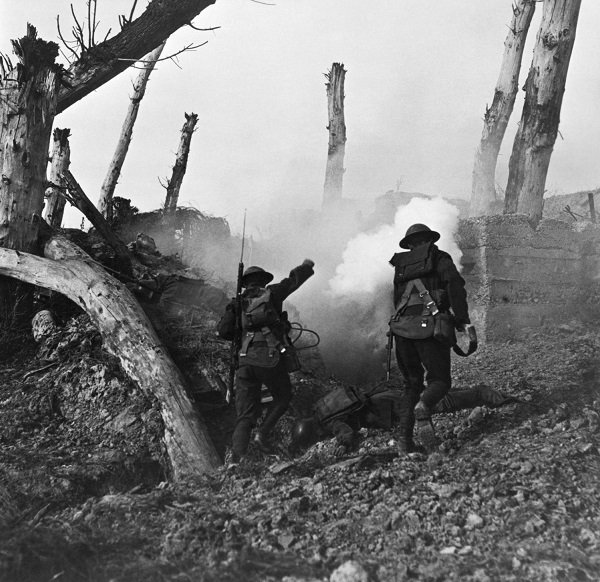 The first World War took place between July 28th, 1914 and November 11th, 1918. The death toll of combatants is said to be over 9,000,000 souls, and the death toll of civilians another 7,000,000 more. Here are some excerpts from letters written by the brave soldiers who served during one of the largest wars in history.
The first World War took place between July 28th, 1914 and November 11th, 1918. The death toll of combatants is said to be over 9,000,000 souls, and the death toll of civilians another 7,000,000 more. Here are some excerpts from letters written by the brave soldiers who served during one of the largest wars in history. -
2.
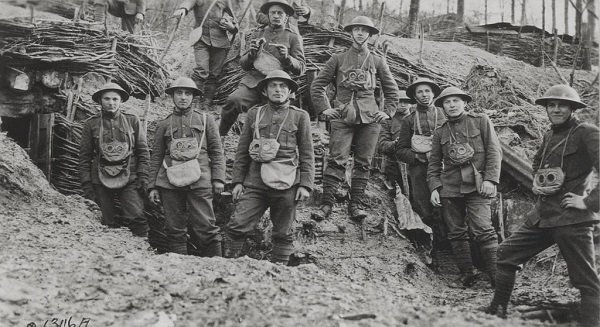 “We live in a trench and it is a mercy it don’t rain otherwise we’d be washed away. The fighting just lately has been terrible. Our shells knock the enemy all ways and the sight in the trenches that we take is awful. We wear our respirators because of the awful smell of the dead. I’ll never get the sight out of my eyes, and it will be an everlasting nightmare. If I am spared to come home, I’ll be able to tell you all about it, but I cannot possibly write as words fail me. I can’t describe things.” Thomas Harold Watts, June 18t, 1915
“We live in a trench and it is a mercy it don’t rain otherwise we’d be washed away. The fighting just lately has been terrible. Our shells knock the enemy all ways and the sight in the trenches that we take is awful. We wear our respirators because of the awful smell of the dead. I’ll never get the sight out of my eyes, and it will be an everlasting nightmare. If I am spared to come home, I’ll be able to tell you all about it, but I cannot possibly write as words fail me. I can’t describe things.” Thomas Harold Watts, June 18t, 1915 -
3.
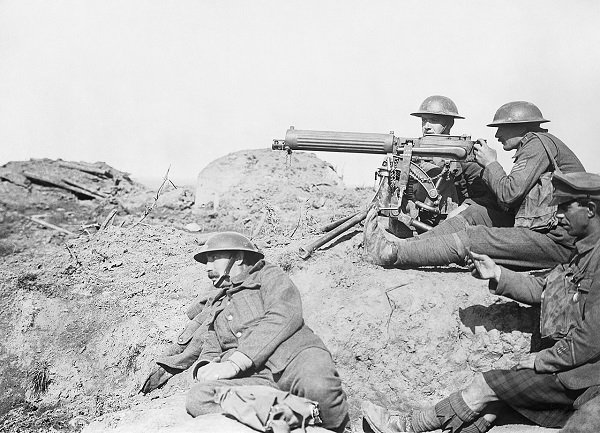 “I’m going to tell you this in case my company commander forgets. Your son is a soldier, and a dog-gone good one, too, if he does say it himself as shouldn’t. And if he gets pipped it’ll be doing his blooming job. In a way, it’s darned funny. All the gang are writing postmortem letters and kind of half ashamed of themselves for doing it. As one of our officers said: “If I mail it and come through the show, I’ll be a joke. If I tear it up and get killed I’ll be sorry I didn’t send it.” S’there y’are…” Sept. 13, 1916, Hart Leech, from Winnipeg , written to his mother shortly before he died in battle.
“I’m going to tell you this in case my company commander forgets. Your son is a soldier, and a dog-gone good one, too, if he does say it himself as shouldn’t. And if he gets pipped it’ll be doing his blooming job. In a way, it’s darned funny. All the gang are writing postmortem letters and kind of half ashamed of themselves for doing it. As one of our officers said: “If I mail it and come through the show, I’ll be a joke. If I tear it up and get killed I’ll be sorry I didn’t send it.” S’there y’are…” Sept. 13, 1916, Hart Leech, from Winnipeg , written to his mother shortly before he died in battle. -
4.
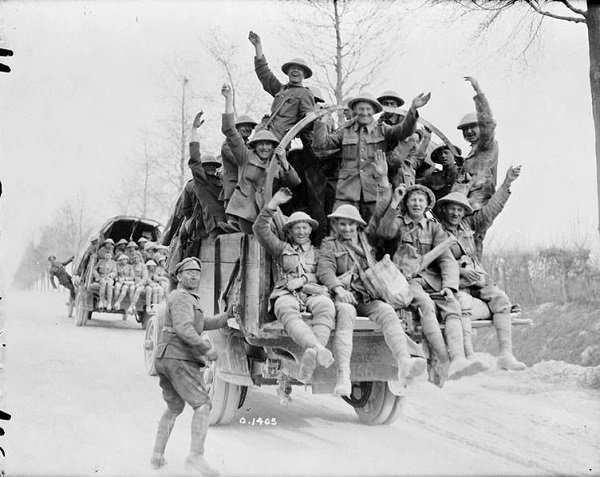 “Dear Aunt, This is the first day they have allowed us to write letters since this battle began and I have no doubt you are anxious to hear from me. Well, we have lost an awful lot of our fellows, and to those of us who are left, it seems just a miracle that any of us came through alive. How I did not get hit I do not know, but I was one of the lucky ones that got through it without a scratch, although I got several bullet holes through my clothes.” Fred Adams after experiencing the first German gas attack of the First World War near Ypres, Belgium. May 2, 1915.
“Dear Aunt, This is the first day they have allowed us to write letters since this battle began and I have no doubt you are anxious to hear from me. Well, we have lost an awful lot of our fellows, and to those of us who are left, it seems just a miracle that any of us came through alive. How I did not get hit I do not know, but I was one of the lucky ones that got through it without a scratch, although I got several bullet holes through my clothes.” Fred Adams after experiencing the first German gas attack of the First World War near Ypres, Belgium. May 2, 1915. -
5.
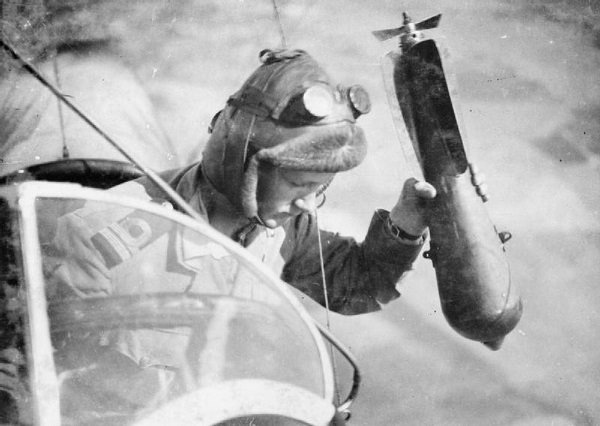 “Dear Effie, We are still in the trenches and have been in action twenty-four days consecutively and I don’t know long we shall keep it up. Had a dirty time yesterday morning dodging damned great bombs the blighters were presenting to us without exaggeration they were eighteen inches to two feet long and made a hole about ten feet deep and fifteen feet diameter at least we did not wait to see them burst. They can be seen descending through the air and then a scoot is made to get as far as possible around the corner, the iron and dirt seem to be falling for a minute afterwards, they are disturbing.” William Albert Hastings, July 11th, 1915.
“Dear Effie, We are still in the trenches and have been in action twenty-four days consecutively and I don’t know long we shall keep it up. Had a dirty time yesterday morning dodging damned great bombs the blighters were presenting to us without exaggeration they were eighteen inches to two feet long and made a hole about ten feet deep and fifteen feet diameter at least we did not wait to see them burst. They can be seen descending through the air and then a scoot is made to get as far as possible around the corner, the iron and dirt seem to be falling for a minute afterwards, they are disturbing.” William Albert Hastings, July 11th, 1915. -
6.
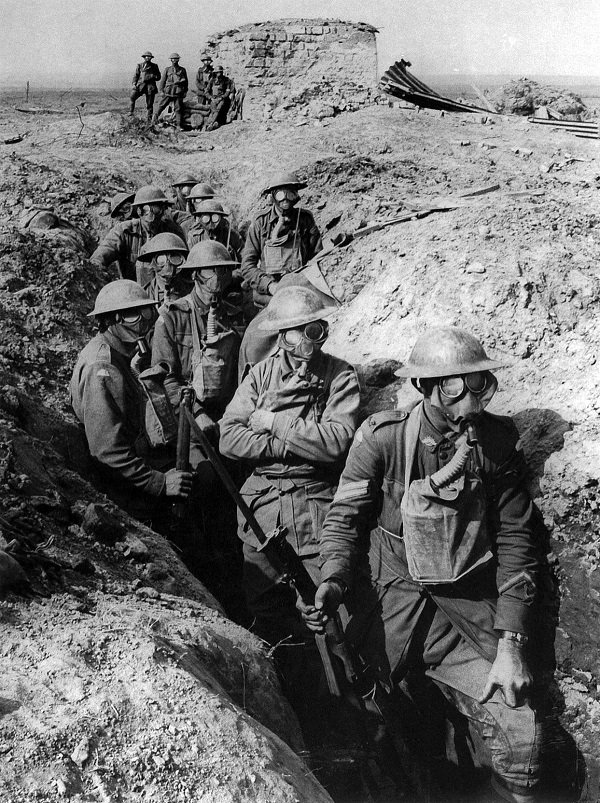 “At the present time we are in dugouts. The weather is simply awful, raining day after day and especially night after night…To tell you the truth, while writing this letter I am wet through to the skin and not a dry thing for a change. How can you expect men to live in this, and then to put a dampener on the lot, was the language from the occupiers who unfortunately were in a residence that fell in during the night. They took shelter under a tree from 2am after looking for me for half an hour or so, but they could not find me, for the only thing that would shift me, after settling down, if I may call it that, would be a ‘Jack Johnson’ and then I would have no option.” Jonathan George Symons, November 10th, 1915.
“At the present time we are in dugouts. The weather is simply awful, raining day after day and especially night after night…To tell you the truth, while writing this letter I am wet through to the skin and not a dry thing for a change. How can you expect men to live in this, and then to put a dampener on the lot, was the language from the occupiers who unfortunately were in a residence that fell in during the night. They took shelter under a tree from 2am after looking for me for half an hour or so, but they could not find me, for the only thing that would shift me, after settling down, if I may call it that, would be a ‘Jack Johnson’ and then I would have no option.” Jonathan George Symons, November 10th, 1915. -
7.
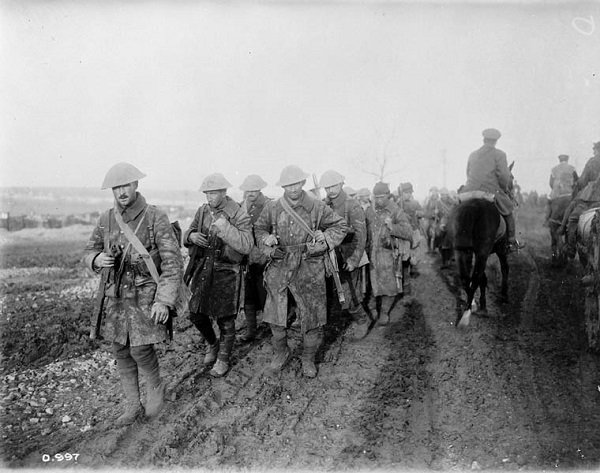 “Dearest Mother, …I’m not suffering as much as most, a young gentleman has been learning to walk again yet he still wants to get back to the frontline. Yes, I am returning to the frontline soon so that’s why I took this opportunity to write. We had strict orders not to take prisoners, no matter if wounded my first job was when I had finished cutting some of their wire away, to empty my magazine on 3 Germans that came out of one of the deep dugouts they were bleeding badly begging for them to be put out of their misery. They cried for mercy, but I had my orders, they had no feeling what so ever for us … it makes my head jump to think about it.” Private Arthur Hubbard, while in the hospital suffering from shell shock, July 7, 1916.
“Dearest Mother, …I’m not suffering as much as most, a young gentleman has been learning to walk again yet he still wants to get back to the frontline. Yes, I am returning to the frontline soon so that’s why I took this opportunity to write. We had strict orders not to take prisoners, no matter if wounded my first job was when I had finished cutting some of their wire away, to empty my magazine on 3 Germans that came out of one of the deep dugouts they were bleeding badly begging for them to be put out of their misery. They cried for mercy, but I had my orders, they had no feeling what so ever for us … it makes my head jump to think about it.” Private Arthur Hubbard, while in the hospital suffering from shell shock, July 7, 1916.
- NEXT GALLERY
-

- 28 Random Pictures To Help You Enjoy Your Weekend!
The first World War took place between July 28th, 1914 and November 11th, 1918. The death toll of combatants is said to be over 9,000,000 souls, and the death toll of civilians another 7,000,000 more. Here are some excerpts from letters written by the brave soldiers who served during one of the largest wars in history.
7/7
1/7
Categories:
Wow


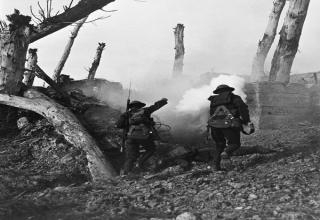






0 Comments